As businesses increasingly seek sustainable energy solutions, the selection of the right solar panels for business has become a critical decision that impacts both operational efficiencies and long-term cost savings. According to a report by the Solar Energy Industries Association (SEIA), solar power installations have grown significantly, reaching a cumulative capacity of over 100 gigawatts in the U.S. alone by 2022, with commercial systems representing a substantial share of this increase. Furthermore, the U.S. Department of Energy states that companies can save an average of 75% on their electricity bills by making the switch to solar energy, emphasizing the economic benefits of adopting solar technology. This blog will explore essential factors businesses should consider when choosing solar panels, ensuring they make informed decisions that align with their operational needs and sustainability goals.

When choosing solar panels for your business, understanding your energy needs is paramount. As sustainability increasingly shapes business strategies, aligning your energy consumption with eco-friendly solutions can drive significant operational benefits. A recent report indicates that U.S. data center power use could potentially triple by 2028, consuming up to 12% of the nation’s electricity. This statistic highlights the urgent need for businesses, especially those leaning into data-intensive operations, to evaluate their energy demands and the best resources for meeting them.

Implementing Smart Eco-energy solutions is crucial for maintaining efficiency and reducing expenses. These systems offer analytics and control frameworks that enable businesses to gain deeper insights into their energy consumption. For instance, collaboration with energy providers and a strong understanding of energy needs can significantly aid in the energy transition. By actively monitoring power usage and exploring renewable options, businesses can not only decrease their ecological footprint but also set themselves up for future growth amidst rising energy costs and demand fluctuations.
When considering solar panels for your business, understanding the different types available is crucial. The three main categories are monocrystalline, polycrystalline, and thin-film solar panels. Monocrystalline panels are known for their high efficiency and sleek appearance, making them an attractive option for businesses with limited rooftop space. They tend to have a longer lifespan and good performance in low-light conditions, which is particularly beneficial for locales with variable weather.
On the other hand, polycrystalline panels are often more cost-effective, though slightly less efficient than their monocrystalline counterparts. They are made from multiple silicon crystals, which gives them a distinctive blue hue and can be an excellent choice for companies that have ample roof space and want to minimize upfront costs. Lastly, thin-film solar panels are the most versatile and lightweight, suitable for unique installations and large-scale projects. However, they generally require more space to produce the same amount of energy as crystalline panels. Understanding these options ensures that businesses can select the solar panel type that best matches their energy needs and budget.
Choosing the right solar panels for your business is a critical decision that can significantly impact your energy efficiency and costs. One of the key factors to consider is the panel efficiency, which determines how much sunlight can be converted into usable electricity. Higher efficiency panels may have a higher upfront cost but can ultimately provide better returns over time, especially if your space for installation is limited. It's essential to assess your energy demand and available installation space before making your choice.

Another important aspect to evaluate is the warranty and lifespan of the solar panels. Most quality panels come with a manufacturer’s warranty ranging from 10 to 25 years, which indicates their expected lifespan and durability. A longer warranty typically signifies confidence in the product, ensuring that you’re covered in case of defects or performance issues. Additionally, consider the brand reputation and customer reviews, as these can provide insight into the reliability and efficacy of the panels you are considering for your business. Taking the time to thoroughly research these factors will empower you to make an informed decision tailored to your specific needs.
When evaluating solar panel efficiency and performance for your business needs, it’s essential to consider the conversion rate, which signifies how effectively the panels convert sunlight into usable electricity. High-efficiency panels often have a conversion rate of over 20%, making them an ideal choice for businesses with limited roof space. Investing in top-tier solar panels is a long-term solution that can significantly reduce energy costs.
Another key factor to consider is the degradation rate of the solar panels. This rate measures how much power output decreases over time, typically ranging from 0.5% to 1% per year. Look for panels with a lower degradation rate to ensure a sustained level of performance and efficiency over their lifespan.
Tips: Choose panels from reputable manufacturers that offer performance warranties of at least 25 years. In addition, consider a solar panel system that includes monitoring features to keep track of its efficiency in real-time. Investing in these high-quality panels not only enhances energy production but also contributes to sustainable business practices.
| Solar Panel Type | Efficiency (%) | Power Output (W) | Warranty (Years) | Cost per Watt ($) |
|---|---|---|---|---|
| Monocrystalline | 20-22 | 300-380 | 25 | $2.50-$3.00 |
| Polycrystalline | 15-20 | 250-350 | 25 | $1.80-$2.50 |
| Thin-Film | 10-13 | 100-150 | 10-15 | $1.00-$1.50 |
| Bifacial | 18-22 | 400-500 | 25 | $3.00-$3.50 |
When considering the switch to solar energy for your business, understanding the budgeting aspects is crucial. The initial investment can seem daunting, but with an average cost of around $11,982 for a 5kW solar panel system in areas like Texas, tax incentives can significantly lower this to approximately $8,387. This makes solar power a more accessible option for businesses looking to reduce their energy costs and improve their environmental footprint.
Moreover, exploring different financing options is essential for maximizing your return on investment (ROI). Many businesses benefit from green financing programs designed to support the adoption of renewable energy technologies. These programs offer various configurations, including loans and leasing options, to tailor financial strategies that align with your business goals. By understanding these financial tools and planning effectively, your business can enjoy both immediate savings and long-term financial benefits, making the transition to solar an economically sound decision.
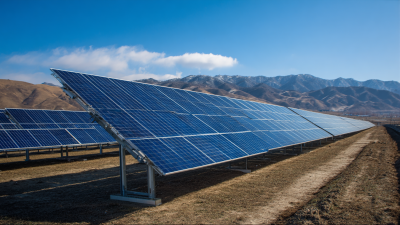
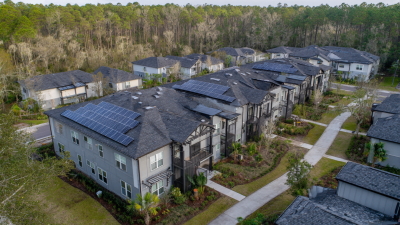
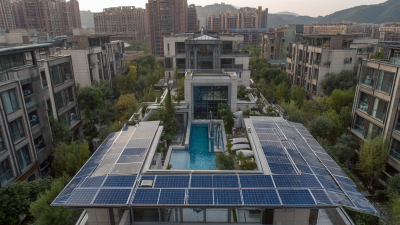

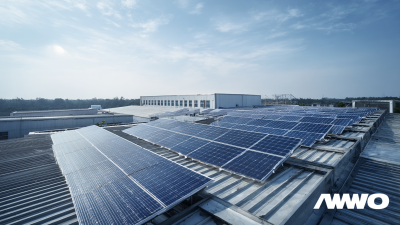
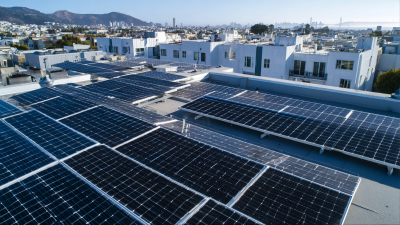
As electricity costs continue rising, many small households in Maharashtra seek sustainabl...Read More
Uttar Pradesh is making significant progress in adopting renewable energy, particularly so...Read More
With the Indian government actively promoting renewable energy through subsidies and polic...Read More
Tired of watching your electricity bills climb month after month and strain your pockets? ...Read More
Switching to solar energy in Gujarat has never been more profitable! With plenty of sunlig...Read More
If you live in Madhya Pradesh and want to save money on power while living a greener lifes...Read More
If you’re a resident of Bangalore looking to save on your skyrocketing electricity b...Read More
If you live in Karnataka and have been looking for an environmentally friendly, cost-effec...Read More
Delhi is a city that thrives on its vibrant energy, and what better way to complement that...Read More
As electricity costs continue rising, many small households in Maharashtra seek ...Read More
Uttar Pradesh is making significant progress in adopting renewable energy, parti...Read More
With the Indian government actively promoting renewable energy through subsidies...Read More